JOYCE / FOUCAULT
Sexual Confessions
JOYCE / FOUCAULT
Sexual Confessions
Wolfgang Streit
THE UNIVERSITY OF MICHIGAN PRESS
Ann Arbor
I must acknowledge my great indebtedness to Paula Maier for her sensitive translation, and for her willingness to work with dispatch, even during the period following the birth of her little Alexander.
Copyright by the University of Michigan 2004
All rights reserved
Published in the United States of America by
The University of Michigan Press
Manufactured in the United States of America
 Printed on acid-free paper
Printed on acid-free paper
2007 2006 2005 2004 4 3 2 1
No part of this publication may be reproduced, stored in a retrieval system, or transmitted in any form or by any means, electronic, mechanical, or otherwise, without the written permission of the publisher.
A CIP catalog record for this book is available from the British Library.
Library of Congress Cataloging-in-Publication Data
Streit, Wolfgang, 1963
Joyce/Foucault : sexual confessions / by Wolfgang Streit.
p. cm.
Includes bibliographical references and index.
ISBN 0-472-11000-4 (cloth : alk. paper)
1. Joyce, James, 18821941 Criticism and interpretation.
2. Confession in literature. 3. Sex in literature.
4. Foucault, Michel. I. Title.
PR 6019.09z814 2004
ISBN13 978-0-472-11000-1 (cloth)
ISBN13 978-0-472-02465-0 (electronic)
ACKNOWLEDGMENTS
I owe my greatest debt of gratitude to Hans Walter Gabler. Not only did he encourage my writing and respond to my revisions of the dissertation on which this book is based, but over some six years he also furthered my understanding of James Joyces writing and indeed other literature, all the while freely accepting my own approach. Along with Ulrich Broich, whom I also wish to thank, he supported my application for the two-year scholarship that allowed me to prepare the core of this book. Many of my ideas about theory date back to my first contact with Foucault in a seminar led by the epistemologist Walter Bhl. Together with the philosopher Georg Kohler, he helped shape my comprehension of Foucaults thought. I am also grateful to the determined structuralist Daniel Wedekind, with whom I enjoyed a great many fruitful discussions.
I also thank the staff of the University of Michigan Press for their generous aid and understanding, foremost Susan Whitlock, LeAnn Fields, Michael Landauer Jr., and Marcia LaBrenz. Our association has been most fortunate. My most heartfelt thanks go to my parents, who never failed to support and encourage me over the course of this project.
Needless to say, any shortcomings in the book are mine alone.
CONTENTS
ABBREVIATIONS
CH | Robert H. Deming, ed. James Joyce: The Critical Heritage. 2 vols. London: Routledge and Kegan Paul, 1970. |
DC | James Joyce. Dubliners. Edited by Hans Walter Gabler and Walter Hettche. New York: Garland, 1993. |
E | James Joyce. Exiles: A Play in Three Acts. London: Penguin, 1973. |
FW | James Joyce. Finnegans Wake. New York: Viking Press, 1959. |
HS I | Michel Foucault. The History of Sexuality. Vol. 1, An Introduction. Translated by Robert Hurley. New York: Vintage Books, 1978. French original: Histoire de la sexualit, vol. 1, La volont de savoir (Paris: ditions Gallimard, 1976). |
JJ | Richard Ellmann. James Joyce. New York: Oxford University Press, 1982. |
JJQ | James Joyce Quarterly. |
P | James Joyce. A Portrait of the Artist as a Young Man. Edited by Hans Walter Gabler and Walter Hettche. New York: Garland, 1993. |
SL | Selected Letters of James Joyce. Edited by Richard Ellmann. London: Faber and Faber, 1975. |
U | James Joyce. Ulysses: A Critical and Synoptic Edition. 3 vols. Edited by Hans Walter Gabler with Wolfhard Steppe and Claus Melchior. New York: Garland, 1984. |
US | Michael Moscato and Leslie LeBlanc, eds. The United States of America vs. One Book Entitled Ulysses by James Joyce: Documents and Commentarya Fifty-Year Retrospective. Frederick, Md.: University Publications of America, 1984. |
WD | Robert Scholes and Richard M. Kain, eds. The Workshop of Daedalus: James Joyce and the Raw Materials for A Portrait of the Artist as a Young Man. Evanston, Ill.: Northwestern University Press, 1965. |
INTRODUCTION: JOYCE & CONFESSION
After Ulysses was published, James Joyce dissociated himself from psychoanalysis in no uncertain terms: In Ulysses I have recorded, simultaneously, what a man says, sees, thinks, and what such seeing, thinking, saying does, to what you Freudians call the subconsciousbut as for psychoanalysis it is neither more nor less than blackmail. What is more interesting, however, than Joyces personal disengagement from a method that has in the meantime become a paradigmatic institution, are the implications of his metaphor. At a time when the substance of Sigmund Freuds constructs, such as the universality of the eros or the Oedipus complex, was still creating a public sensation, Joyce completely ignored the contents of psychoanalysis and focused exclusively on its form. If blackmail formally describes a transaction under duress, equating it with psychoanalysis projects this aspect of coercion onto the therapeutic method. As the metaphor suggests, when the analyst incites the patient to verbally express his own desire, implying the promise that this verbalization will ensure liberation from the symptom, a blackmailing force unfolds in the act of speaking.
A statement made by Joyce in 1919 while writing Ulysses places his critical attitude toward psychoanalysis in the expanded context that leads up to the theme of this book. As recorded by Ettore Schmitz, Joyce, upon being asked to comment on psychoanalysis, responded: Well, if we need it, let us keep to confession (JJ 472). Jointly, these two inconspicuous sideswipes shed a telling light upon a basic structure and theme of Joyces texts. Just as in the later blackmail metaphor, even the unexpected confrontation here between psychoanalysis and confession is concentrated not on substance, but on form. According to Joyce, these two conversational techniques, the modern as well as the significantly older, are not only formally comparable; they also become indistinguishable at the point whose coordinates determine the otherwise undefined it: the sheer compulsion to speak.
Without placing blame on the analyst or confessor, Joyce points out an area of commonality underlying the institutions of psychoanalysis and confession: the one promises to relieve the patient of his symptoms, while the other promises to redeem the Catholic believer from the tortures of hell, thus relying on two fundamentally disparate strategies in order to solicit from their clients the same commodity: sexual confession. Just as this book employs Joyces personal opinion of a particular type of psychological method solely as the point of entry into another discussion, Joyce himself, in the conversation mentioned above, also switches course from the secondary psychological track to the track he considers to be of primary importance: if we are interested in techniques for eliciting speech about sex and desire, Joyce implies, we should concentrate on confession.


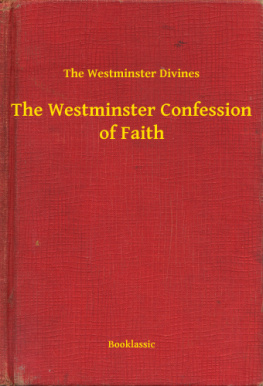
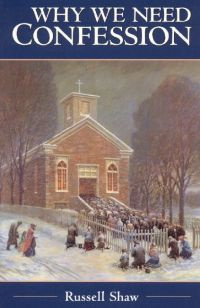
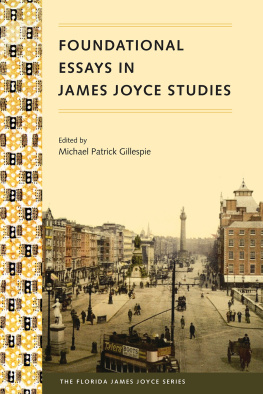
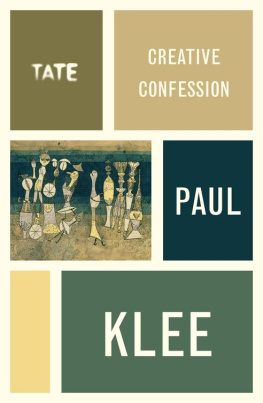
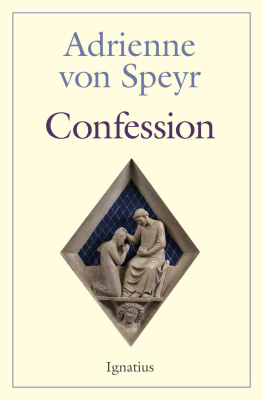
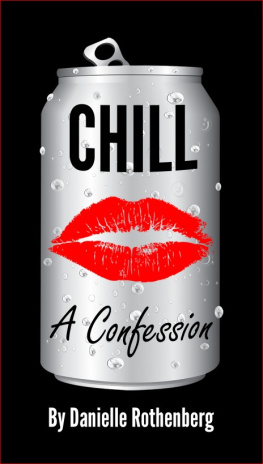
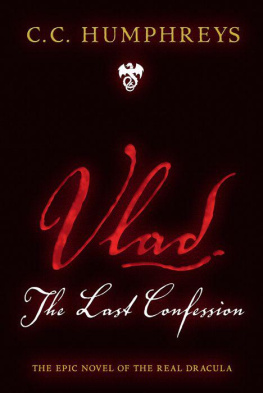
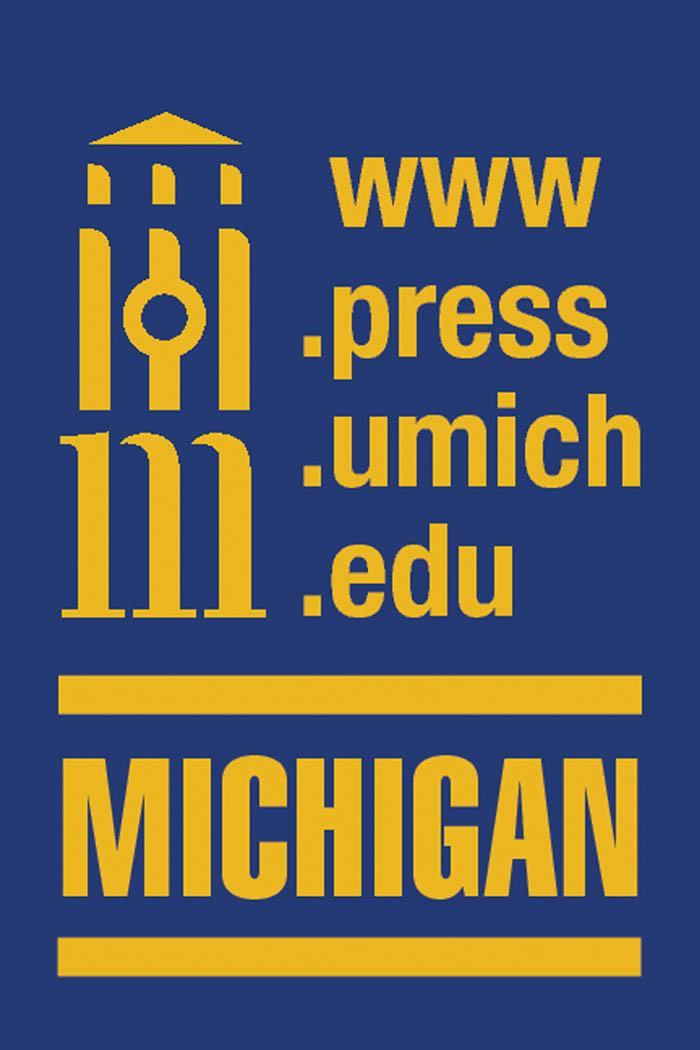
 Printed on acid-free paper
Printed on acid-free paper